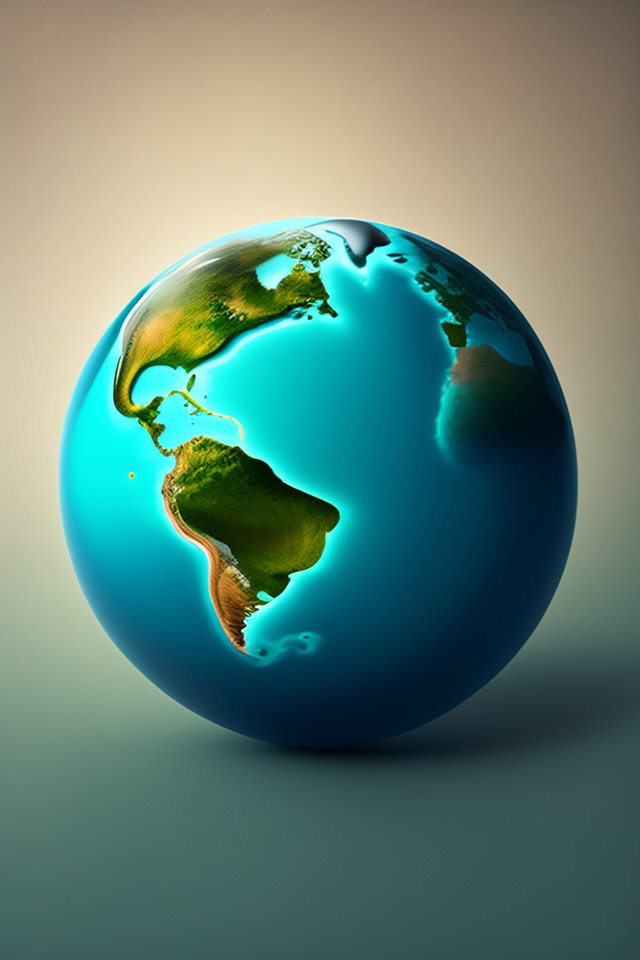"The Plastic Dilemma: Our Earth's Biggest Enemy"
Plastic has become a significant environmental issue in recent years, and it's no surprise why. It is cheap, lightweight, durable, and has a wide range of applications. However, its impact on the environment, especially on our oceans and wildlife, is devastating.
Plastic is one of the most commonly used materials in the world, and it's estimated that over 300 million tons of plastic is produced every year, and this number is expected to double by 2034. The problem with plastic is that it does not biodegrade; instead, it breaks down into smaller and smaller pieces called microplastics. These microplastics can then end up in our oceans, where they can harm marine life and even end up in our food chain.
The problem with plastic pollution is that it has a long-lasting impact on the environment. It can take hundreds of years for plastic to decompose, and in that time, it can cause significant damage to our ecosystems. Plastic waste can harm animals in a variety of ways, including ingestion, entanglement, and habitat destruction.
When animals consume plastic, it can cause internal injuries, blockages, and even death. The ingestion of plastic can also lead to bioaccumulation, where plastic chemicals build up in the food chain, leading to more severe health problems for both animals and humans. Plastic waste can also entangle animals, causing severe injuries and preventing them from swimming or moving, ultimately leading to starvation.
Furthermore, plastic pollution can harm our oceans, which are crucial for maintaining the planet's overall health. Our oceans help regulate the Earth's climate, provide food, and even produce oxygen. The destruction of marine ecosystems can have far-reaching consequences for the entire planet.
Despite the severity of the problem, plastic waste continues to be a significant environmental issue. Many plastic products are single-use, and once they are used, they are discarded, ultimately ending up in landfills or oceans. While recycling is a viable solution, it is not enough. Only 9% of all plastic waste is recycled, and the rest ends up in landfills or oceans.
The solution to this problem involves a combination of individual and collective actions. Governments can take steps to ban single-use plastics, incentivize companies to develop sustainable alternatives, and invest in recycling infrastructure. Individuals can also take steps to reduce their plastic consumption by using reusable bags, bottles, and containers.
In conclusion, plastic is a significant environmental issue that needs immediate action. We must acknowledge that plastic waste is a problem and take steps to reduce our consumption and improve our waste management systems. Our planet's health depends on it, and we owe it to ourselves and future generations to make a positive change.
"Save Our Beautiful Earth!"

"Save Our Beautiful Earth!"
Plastic is everywhere around us. From our homes to our workplaces, it has become an integral part of our daily lives. However, this convenience comes at a high cost to our environment. Plastic waste is one of the most significant contributors to pollution, and it is causing irreversible damage to our planet. It is time to take action and reduce our plastic use to save our beautiful Earth.
Plastic waste has been a growing concern for several decades, and its impact on the environment is undeniable. Plastic takes hundreds of years to decompose, and it is estimated that over 8.3 billion metric tons of plastic have been produced worldwide since the 1950s. Much of this plastic ends up in landfills, oceans, and other natural habitats, where it can take hundreds of years to break down. As it slowly decomposes, it releases harmful chemicals that pollute our air, water, and soil, affecting both humans and wildlife.
Marine animals are particularly vulnerable to plastic pollution. Every year, millions of marine creatures die from ingesting plastic waste or becoming entangled in it. This is not only a devastating loss for our planet's biodiversity but also a threat to our food chain. When fish and other seafood ingest plastic, the chemicals can accumulate in their tissues and eventually find their way into our bodies when we consume them.
Reducing plastic use is an urgent priority if we want to save our beautiful Earth. There are many simple steps that we can take to reduce our plastic waste, such as:
Using reusable bags, water bottles, and containers: Instead of using single-use plastic bags, bottles, and containers, opt for reusable ones. Many stores now offer reusable bags, and stainless steel or glass water bottles are widely available.
Refusing single-use plastic straws and utensils: When dining out, refuse single-use plastic straws and utensils. Instead, bring your own or choose biodegradable alternatives.
Recycling properly: Ensure that you recycle all plastic materials correctly. Check with your local recycling center for guidelines and learn what can and cannot be recycled.
Supporting eco-friendly products: Choose products that are made from eco-friendly materials, such as bamboo or recycled plastic.
Participating in community clean-up events: Join local clean-up events in your community to help remove plastic waste from natural habitats.
In conclusion, reducing plastic use is essential to saving our beautiful Earth. By taking small steps, we can collectively make a big difference in preserving our environment and protecting the biodiversity of our planet. It is time to take action, and we all have a role to play in ensuring a sustainable future for generations to come.
@tipu curate
Upvoted 👌 (Mana: 6/7) Get profit votes with @tipU :)